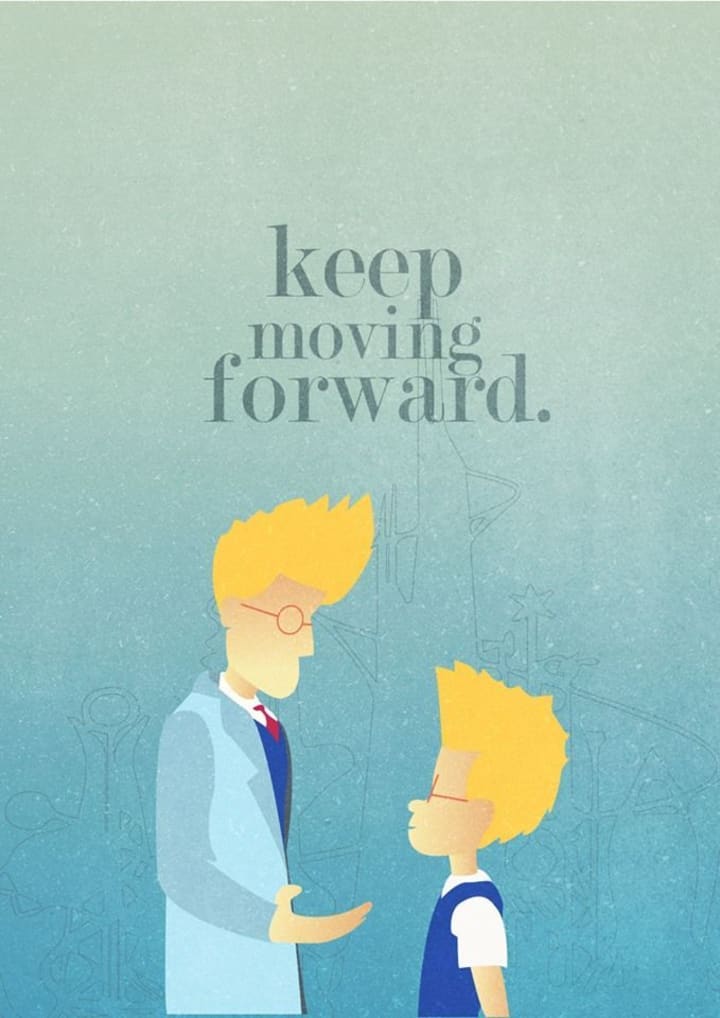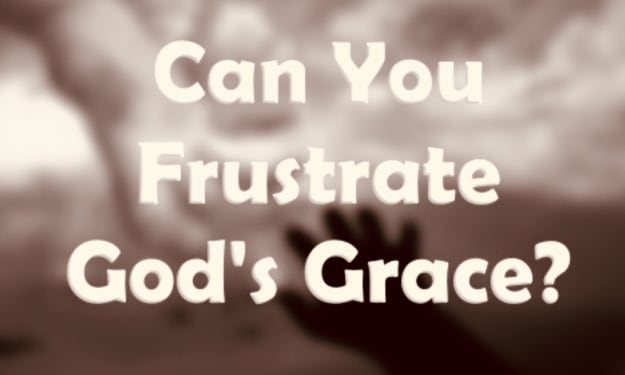Like you, I grew up a child of two worlds; one internal, the other external. I took my inside world more seriously than I did the outside. Though it lay in front of me, it did feel less able than my imagination. I pushed the external world away, I ignored it. I soon faced the truth that it will not go away but become a conflict with my internal world. With age, failure, learning, regret, love, and forgiveness, I gained a new perspective - Balance.
While some battles were cheap and short, others proved tough and resolute. A few were silent, others loud; some sneaky but mostly obtuse. The sneaky ones were tricky; one such was "mislearn", and "unlearn" its antidote. This "yin and yang", represented a duality. While they may appear a tad simple (which they could be), it is only an appearance, it isn't a practical truth. They are deceptive, surgical, and as daunting as battles come. The quandary they stage is a crucible of fire that can make or break anybody; it is a hot painful internal process and certainly, the stuff true challenges are made of.
A duality holds two interdependent elements that are no longer separate, though they are distinct.
I learned to be naive, and that was my miseducation. My world had nothing complex inside it. Yet, the outside world frequently threatened to boost this duality thingy, "mislearn and unlearn". While it pierced my fantasy, it woke me up to reality with its crushing blow time and again. I had mislearned the concept of doing or action; I thought everyone finds their place, without fighting for it. I became the epitome of the fantasy "what will be, will be". I, therefore, matured mentally very late. I owned a simple mind, so I was toast from day one. As I unlearned it, I always noticed that I had to play catch up.

I expatiate on the "action/inaction" duality using this cultural illustration from cinema, a dialogue from The Dark Knight Trilogy, about doing or not doing what needs to be done; it's not who I am underneath, but what I do that defines me. If you're as mislearned like I was, you'd like it to read "It's not what I do, but who I am underneath that defines me". So I'll be the first, to caution you that this inversion does not stand the "truth" test in our logical world. But, if you do find it comforting, perhaps even attractive you must choose only to treat it as a fantasy.
Second, the quote clarifies how people are valued. It explains that a person can only be valued based on what he/she "can do", and not valued on what he/she "thinks or feels they can do". It reiterates the need for action, "do" against inaction, "who I am underneath". If we can be honest, let's think of this in terms of "what we're paid to do and what we'd like to be paid to do". Setting aside luck or a fortune reversal, we all want to be paid for what we like to do. The question is are we ready? Or can we do what we like to do so well to be paid to do it?
"Action is the foundational key to all success" - Pablo Picasso
Third, it's a principle. And principles occur as fundamental truths that are permanent, unchanging, and universal in nature. Stephen Covey described a principle as “a natural law like gravity". For example, if you drop something gravity will control it. If I don't tell you the truth, you won't trust me.

Let's clarify the "action/inaction" duality further. If we want to build a car, which of these three would we pay to do the job, a Surgeon, Lawyer, or an Engineer? The answer is the Engineer because that is what he/she is paid to do? Then our answer is permanent, unchanging, and universal so it becomes a principle. Notice that the job 'to build a car' is given on the basis of "what the person can do", not on "what he/she thinks, or feels he/she can do".
If you have potentials you're not using, it is not doing you any good until you put it to work. For as long as you don't use it, it will lay dormant in you. And no one will pay you for it, so put it to work. And while you might be on this spot, the only remedy is an action; keep moving forward. If you've dropped anything or almost started it, or maybe you never began, you're standing on the right spot to startup again. It's the right time to get back to it and keep it moving forward. This is the moment to make that change, break that habit, design a dress, or build a family, create anything, to buy a house, and or to make that invention. And natural as the feeling to wait might be, that sort of thinking is flawed. It is the principle of "how things don't get done", for we learn to do things, by actually doing them.

Generally, we must worry about inaction. In reality, one starts up something (degree, venture, business, or relationship) before one is fully prepared. And nothing unfolds all at once, rather it will unravel bit by bit until a full picture is self-evident. Go talk to anyone with an exploit; you will find that they figured it out as they kept moving forward. They did what it took; "here a little, there a little", but they didn't give up. So, if you have such a mindset, you will want to work out your internal conflict or duality.
"I am always doing that which I can not do, in order that I may learn how to do it" ― Pablo Picasso
We all experience internal conflict, which is OK; it is one of the many natural laws man must encounter. However, what we must strive for is to achieve a balance. Although more examples of duality like "right-wrong", "forward-backward", "why or why not" happen, more examples occur in ideology, mathematics, philosophy, culture, and religion. So, when Bruce in Batman Begins (2005) delivers the dialogue, “It's not who I am underneath, but what I do that defines me”, we have a duality in film (a metaphor for life).
It had originated as a reply to Bruce, 'when Rachel questioned his inaction about organized crime in Gotham City'. While Bruce Wayne hid under his playboy/Wayne Family Legacy, this duality-type was a lesson for Batman. The quote dramatizes action/inaction in a balance. While it is an internal conflict it stresses the need to ‘do’ rather than to ‘not do’. It takes the internal (inaction) of a person and makes it external (action).
I find that this can be likened to a quandary; a kind of, to be or not to be that is the question, paraphrasing Shakespeare’s Hamlet in a soliloquy. Bruce just like Hamlet was in a dire strait (internal conflict) over the death of his parents, and the crime in Gotham. Hamlet faced a "life/death" duality and he had to choose between the two risks, neither of which was acceptable or preferable. He hit a brick wall and desperately kept moving forward.
We often find ourselves in situations like these two protagonists, Bruce and Hamlet, since no one is immune to duality. It slays the old and the young; it engulfs the wise and the unwise; it serves no profession, nor people of any status, size, gender, or ideology. It regards nothing but its own purpose; yet it is a shared/isolated duality experience, a human condition. I bet everyone, even you, at one time or another are familiar with the internal workings of at least one duality. I think we can quantify it with another dialogue from Bill Paxton's character in Edge of Tomorrow (2014).
Narration: "...the battle is the great redeemer. It is the fiery crucible in which true heroes are forged. The one place where all men truly share the same rank, regardless of what kind of parasitic scum they were when going in." Edge of Tomorrow (2014).
Master Sgt. Farell (Bill Paxton) describes Private Cages' (Tom Cruise) internal conflict of action/inaction and offers him a battle for a fiery crucible of conflict as a remedy/balance for his inaction. As much as I enjoyed his dialogue, it also does a deeper job to craft the intense emotional feeling that often accompanies this experience. The feelings we encounter because of any duality; the overwhelming sensation of pressure, heat, sweat, palpitation, and the ever-present pumping adrenaline.
In this heated moment, we are tested to balance what we must do now with what we must do later. Leaving out the not-so necessary stuff that is burnt away, we focus on what is important and channel our energy into one single focus to get it done. Thereafter, we keep moving forward. And that is all that matters!
We are subject to the inner workings of dualities. Perhaps, it really is a fiery crucible where true heroes are forged. A path for humankind to explore its potentials, helping us develop and cultivate moral virtues such as explained in "The Eleven Moral Virtues of Aristotle's Nicomachean Ethics" namely; 'Courage', 'Moderation', 'Liberality', 'Magnificence', 'Greatness of Soul', 'Gentleness', 'Friendliness', 'Truthfulness', 'Wittiness' and 'Justice'.
Through duality we can be imbued with a tough-minded determination to do good, to be great, to make a better life, and to care for others. We can live a meaningful, deserving and memorable life, one that will be celebrated longer after we're gone.
“There are only two mistakes one can make along the road to truth; not going all the way, and not starting.”
― BUDDHA
About the Creator
Dapo
I write about personal ideas, experiences or researched concepts. I publish "indieactivity" - an independent filmmaking publication for filmmakers.







Comments
There are no comments for this story
Be the first to respond and start the conversation.